A classic book on the subject of lost Pacific Ocean continents was originally published in 1931 and entitled, Lemuria The Lost Continent of the Pacific. The author’s name on the cover is “Wishar S. Cerve,” who is also known as “H. Spencer Lewis,” was the founder of the Ancient and Mystical Order of the Rosae Crucis (Rosicrucians) in the United States and it’s first Imperator from 1915 to 1939.
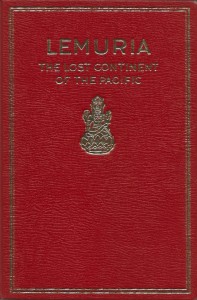
I recently received an email that inquired about the identity of the person that wrote chapter six of this book, a certain Dr. James D. Ward, identified as an Eminent Disciple of Oriental Monastery Schools. The author of the email wished to know if this person could possibly be James Churchward.
In comparing the similarities between the writing of Chapter 6 of Lemuria… and Churchward’s writings, I found that both men attacked unnamed experts and promised to tell the ‘real’ truth and secondly, both witnessed historical records that nobody else has/had seen.
The differences were greater and are provided below in the table:
| Ward |
Churchward |
| God was creator of Man and everything |
Four Sacred Forces and Supreme Consciousness created everything |
| Lemuria. What’s Mu ? |
Mu, not Lemuria |
| Atlanteans were another people |
Atlantis was a colony of Mu |
| Lemurians started out as perfect and digressed over time |
People of Mu did not digress until the great cataclysm that sunk Mu |
| inclined to believe that Man once walked on all fours* |
Evolution does not exist |
| Implies that Jesus was a reincarnation of one of the 12 Holy Lemurian disciples |
Jesus was a Master that was taught by the Nacaals. |
* Yes, I realize this is a contradictory statement to the one immediately above it (see page 145 [1974 edition])
There are at least three possible answers. The first being no, although there is a similarity in the last names James Ward was not James Churchward. Another possibility was that James did write it and it was published as is. The third being that whatever James wrote was later edited. Thankfully, a subsequent email with a bio on Dr. Ward was received which indicates that James Churchward was not the author.
I found, in contrast with the works of my great-grandfather, that this book provides no references, or so it seems. In James Churchward’s books, names of famous authors and scientists, as well as scholarly books are dropped in support of the points in the narrative, however in Lemuria…, a passage near the front of the book relates that all the sources are listed together in an appendix. In part 2 we’ll compare the references in that appendix to the references that James used.
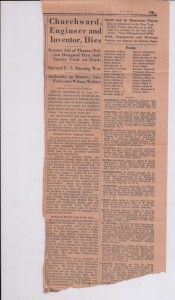

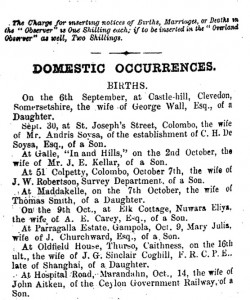


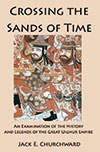
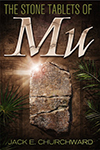
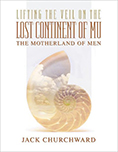



 RSS - Posts
RSS - Posts